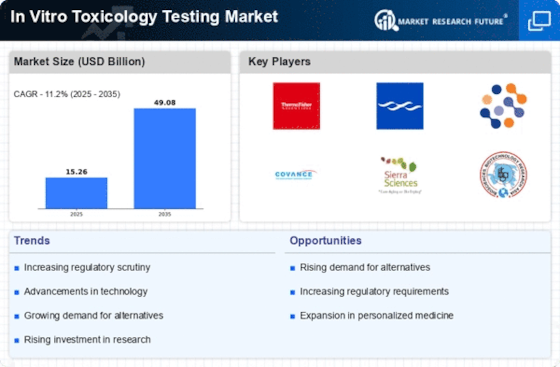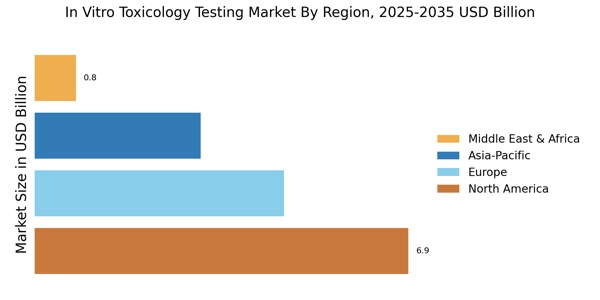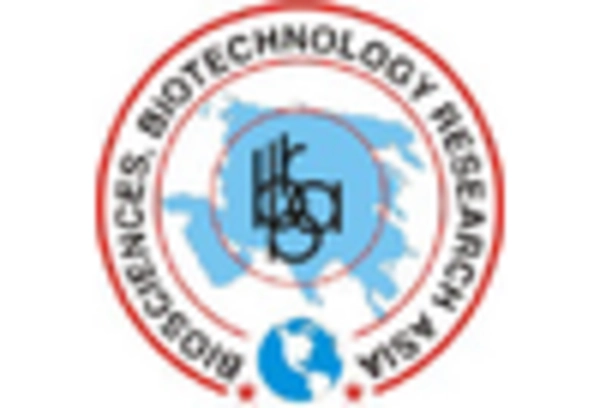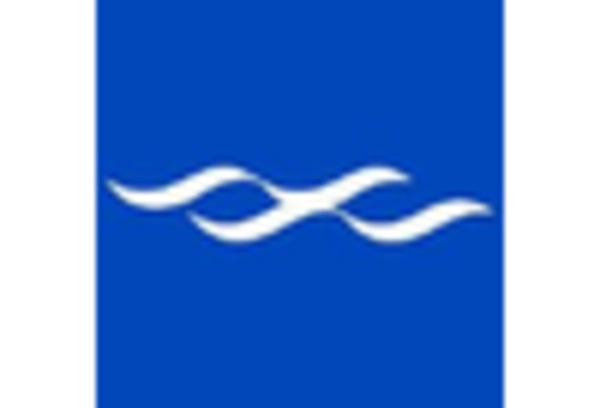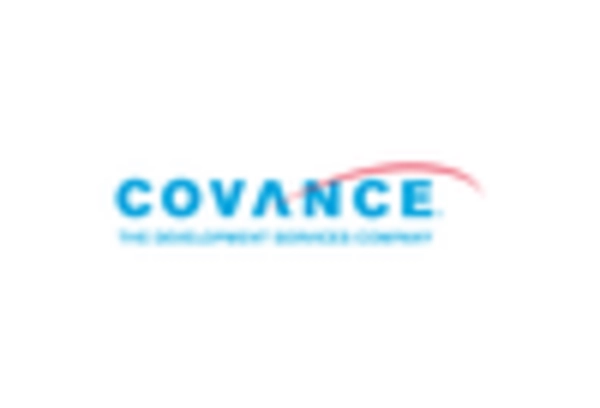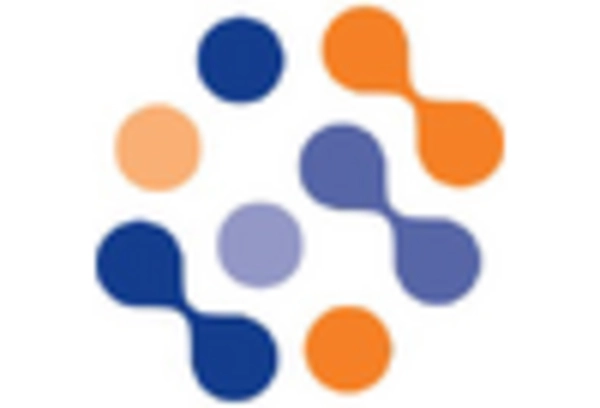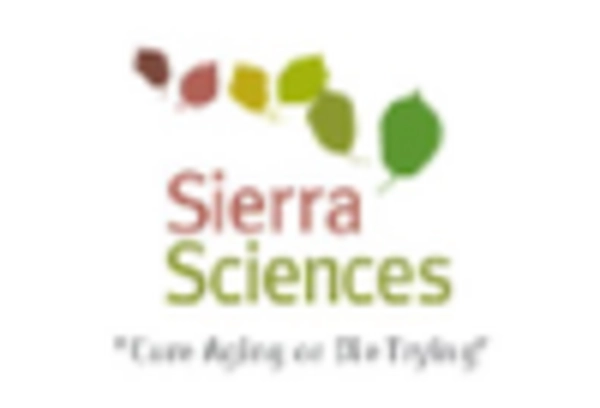Stringent Regulatory Frameworks
The In Vitro Toxicology Testing Market is significantly influenced by stringent regulatory frameworks that govern the safety and efficacy of pharmaceuticals and chemicals. Regulatory agencies are increasingly mandating the use of in vitro testing methods to assess toxicity, which has led to a surge in the adoption of these techniques. For instance, the European Union's REACH regulation emphasizes the need for alternative testing methods, thereby driving the market forward. This regulatory push not only ensures consumer safety but also encourages innovation within the industry. As companies strive to comply with these regulations, the demand for in vitro testing solutions is expected to rise, further propelling the growth of the In Vitro Toxicology Testing Market.
Growing Investment in Biotechnology
The In Vitro Toxicology Testing Market is benefiting from the growing investment in biotechnology. As biopharmaceutical companies expand their research and development efforts, the demand for in vitro testing solutions is likely to increase. Investors are recognizing the potential of biotechnological advancements to revolutionize drug discovery and development, leading to increased funding for innovative testing methods. This influx of capital is expected to foster the development of novel in vitro assays and technologies, further enhancing the capabilities of the In Vitro Toxicology Testing Market. Additionally, as biotechnology continues to evolve, the integration of in vitro testing into various applications will likely become more prevalent, driving market growth.
Emerging Markets and Global Expansion
The In Vitro Toxicology Testing Market is poised for growth due to the emergence of new markets and global expansion efforts. As countries in Asia and Latin America enhance their regulatory frameworks and invest in research infrastructure, the demand for in vitro testing is expected to rise. These regions are increasingly adopting modern testing methods to meet international standards, which presents significant opportunities for companies operating in the In Vitro Toxicology Testing Market. Furthermore, as global collaborations between research institutions and pharmaceutical companies increase, the sharing of knowledge and resources will likely accelerate the adoption of in vitro testing methods worldwide, contributing to the overall growth of the market.
Rising Demand for Alternative Testing Methods
The In Vitro Toxicology Testing Market is experiencing a notable increase in demand for alternative testing methods. This shift is largely driven by the ethical concerns surrounding animal testing, which has prompted regulatory bodies to advocate for more humane practices. As a result, in vitro testing methods are gaining traction due to their ability to provide reliable data while minimizing animal use. The market is projected to grow at a compound annual growth rate of approximately 7.5% over the next few years, reflecting the increasing preference for these methods among researchers and pharmaceutical companies. Furthermore, advancements in technology are enhancing the accuracy and efficiency of in vitro tests, making them more appealing to stakeholders in the In Vitro Toxicology Testing Market.
Increased Focus on Drug Development Efficiency
The In Vitro Toxicology Testing Market is witnessing a heightened focus on improving drug development efficiency. Pharmaceutical companies are under pressure to reduce the time and costs associated with bringing new drugs to market. In vitro testing offers a faster and more cost-effective alternative to traditional methods, enabling researchers to identify potential toxic effects early in the development process. This efficiency is particularly crucial in the current competitive landscape, where the average cost of developing a new drug can exceed $2.6 billion. By integrating in vitro testing into their workflows, companies can streamline their processes and enhance their chances of successful drug approval, thereby driving growth in the In Vitro Toxicology Testing Market.


